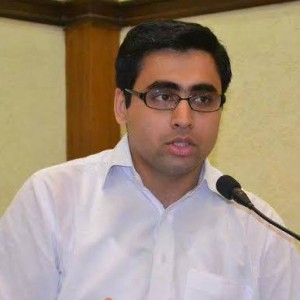
By Manish Rai:
Aleppo, once Syria’s industrial and economic hub before the war, has emerged as the civil war’s latest high-stakes battlefield as the warring parties pour in all of their military might to try to strike a definitive blow against their opponents. In the first year of the revolution Aleppo saw neither the large-scale protests nor the deadly violence that shook other towns and cities. However, it suddenly became a key battleground in July 2012, when rebel fighters launched an offensive to oust government forces and gain control over northern Syria. Aleppo has been divided since then between the government and the rebels, with the Assad government holding the west while rebels control districts in the east and much of the surrounding countryside of Aleppo governate. Even some parts of the city are changing hands on a daily basis now. According to the International Committee of the Red Cross, the battle of Aleppo is one of the most devastating urban conflicts in modern times. There has been massive damage to the city’s basic infrastructure. With water and electricity supplies cut or severely reduced, the population is at risk from untreated and unsafe water. Humanitarian organizations have begun trucking drinking water as an emergency measure.
Recently Assad’s regime tightens the siege around Aleppo to force the rebel fighters to surrender but rebels hit back by breaking the siege. One vital question that arises is why has Aleppo become so crucial for both the Syrian regime and the opposition. As Aleppo used to be the largest city in Syria its recapturing for the President Assad regime would be of military and psychological significance, and a boost to the Syrian government’s popular legitimacy. On the other hand Aleppo is the last major urban holding of the mainstream armed opposition in Syria. If the political process is to amount to anything other than a regime victory in all but name, the rebels have to hold Aleppo city. Both sides are throwing everything they can at the four-year battle for the city, a fight that has come to define the Syrian civil war, because each believes the fate of Aleppo will decide the outcome of the conflict. The Syrian government has organised a good number of forces through the participation of its own regular Syrian Arab army, Hezbollah and Shia militias and it should not be forgotten that these forces are also supported by Russian airpower. On the other hand rebels have also mobilised a number of groups including the Free Syrian Army, Jaysh al-Fateh, Jabhat Fateh al-Sham formerly Jabhat al-Nusra and Ahrar al-Sham.
Like the opposition, President Bashar Al Assad and his inner circle are convinced that taking Aleppo will effectively end the civil war, breaking the morale of the opposition and condemning it to a marginal existence as a rural insurgency that can no longer claim to represent large sections of Syrian society. By bringing all the country’s major cities under his control he will also remove the threat that his international critics can push, as they once did, for a new Syrian settlement that does not include him as leader. Moderate members of Syria’s opposition argue that they fear not just for the people of Aleppo, but for the state of their wider cause that is the Syrian revolution and believe the siege is aimed not just to force the rebels fighters to surrender but also to polarise further a war that Assad has always cast as a battle between himself and extremists and jihadists.
The fact is that in Aleppo a race of reinforcements is going on between the government and the opposition. It is difficult to assume, how long the battle in Aleppo will last as this will depend on the speed of transfer of reinforcements. In the coming few months it will be a test for the government forces and opposition fighters. If the government will be able to take full control of Aleppo then it will have control to all major urban centres of the country including Aleppo, Hama, Homs and Damascus and that’s the spine of the country, and that’s what concerns the regime and its sponsor in particular. It would then allow them to free up forces, potentially, to go on the offensive elsewhere, directly into Idlib province, most likely, and then eventually into the south. Then after that they could turn their attention finally to the ISIS de-facto capital Raqqa. But all of these things would take some time, probably months or years to fully institute. It is a high possibility that the Syrian regime and its allies are going for a whole-country solution to the Syria crisis based on the Assad regime’s control of the key cities and Aleppo will be the major step in this direction. The defeat of the Aleppo insurgents could be seen in Damascus as a precursor to the collapse of the armed rebellion against Assad’s rule.
Manish Rai is a columnist covering the Middle-East and Af-Pak regions and Editor of the geo-political news agency Views Around. He can be reached at manishraiva@gmail.com
.jpg)



